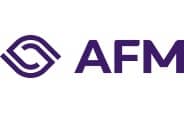This news is older than 3 years. Therefore it is possible that the information is no longer valid.

Application of new reporting standards on course
Companies are providing good disclosures regarding the transition to IFRS 9 ‘Financial instruments’ and IFRS 15 ‘Revenue from Contracts with Customers’. IFRS 16 ‘Leases’ is expected to have a greater impact for most companies. The quality of non-financial information can be improved so that it becomes more relevant, more comparable and more balanced. These are the findings of two reviews in ‘In Balance 2018’ published by the AFM today.
The International Financial Reporting Standards (IFRS) are the reporting standards that listed companies must use when preparing their financial statements. The use of these standards makes financial statements more comparable for investors and of consistently higher quality.
Impact of new IFRSs
The AFM reviewed how the transition to the new IFRSs has been disclosed in the 2017 financial statements and the interim statements for 2018. Most companies disclose the effects of IFRS 9 and IFRS 15 properly. Few companies have experienced a significant impact on their financial statements as a result of these two new standards. The AFM expects listed companies to provide quantitative disclosures with respect to the material impact of IFRS 16 in their 2018 financial statements.
Sustainability is increasingly important
Attention to sustainability in the financial sector is a priority for the AFM. The availability and quality of non-financial information is an important starting point in this respect. 80% of the 89 listed companies in our review report on their policy regarding the various aspects of non-financial information in their management reports for 2017. However, the translation of this policy into risks, KPIs and results can be improved.
New regulations come into effect
With effect from the 2017 financial year, large Public Interest Entities (PIEs) (listed and unlisted companies) must include non-financial information in their management reports. This includes policy, diversity and risks, as well as performance with respect to the environment and the combating of corruption and bribery. In addition, the rules governing the valuation and determination of the result of financial instruments (IFRS 9) and the recognition of revenue (IFRS 15) have changed with effect from 1 January 2018. IFRS 16 takes effect on 1 January 2019.
Examples of good and bad practices
In December 2017, the AFM published the results of two self-assessments in preparation for the new regulations. These self-assessments were carried out in order to draw attention to the new regulations in good time. The AFM wishes to motivate companies to implement the standards properly. The two review reports thus include a number of examples of good and bad practices.
Journalists may contact Daniëlle de Jong, AFM Press Officer, on 020 797 2129 or danielle.de.jong@afm.nl.
Contact for this article

Would you like to receive the latest news from AFM?
Subscribe to our newsletter, we will keep you up-to-date.